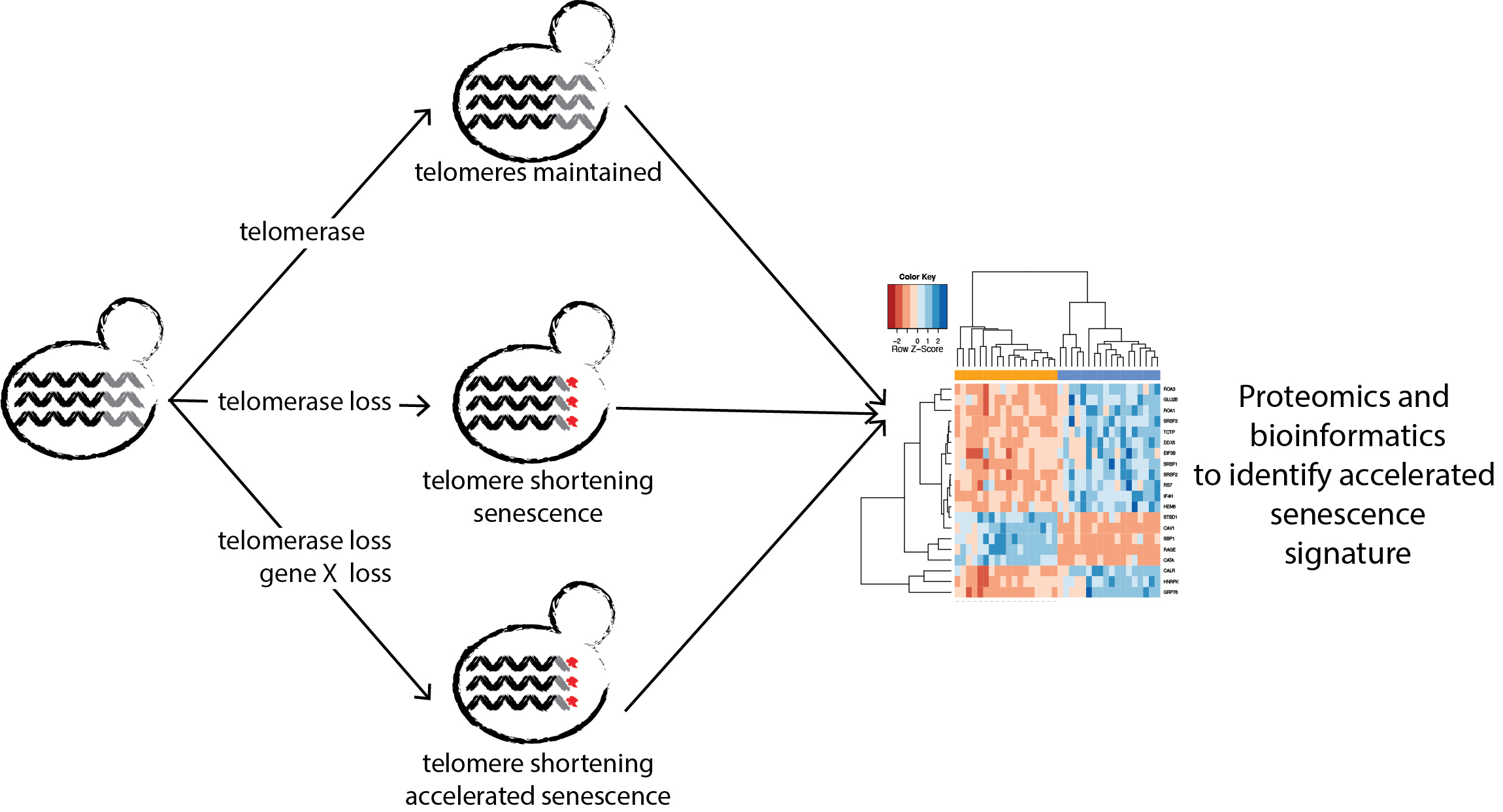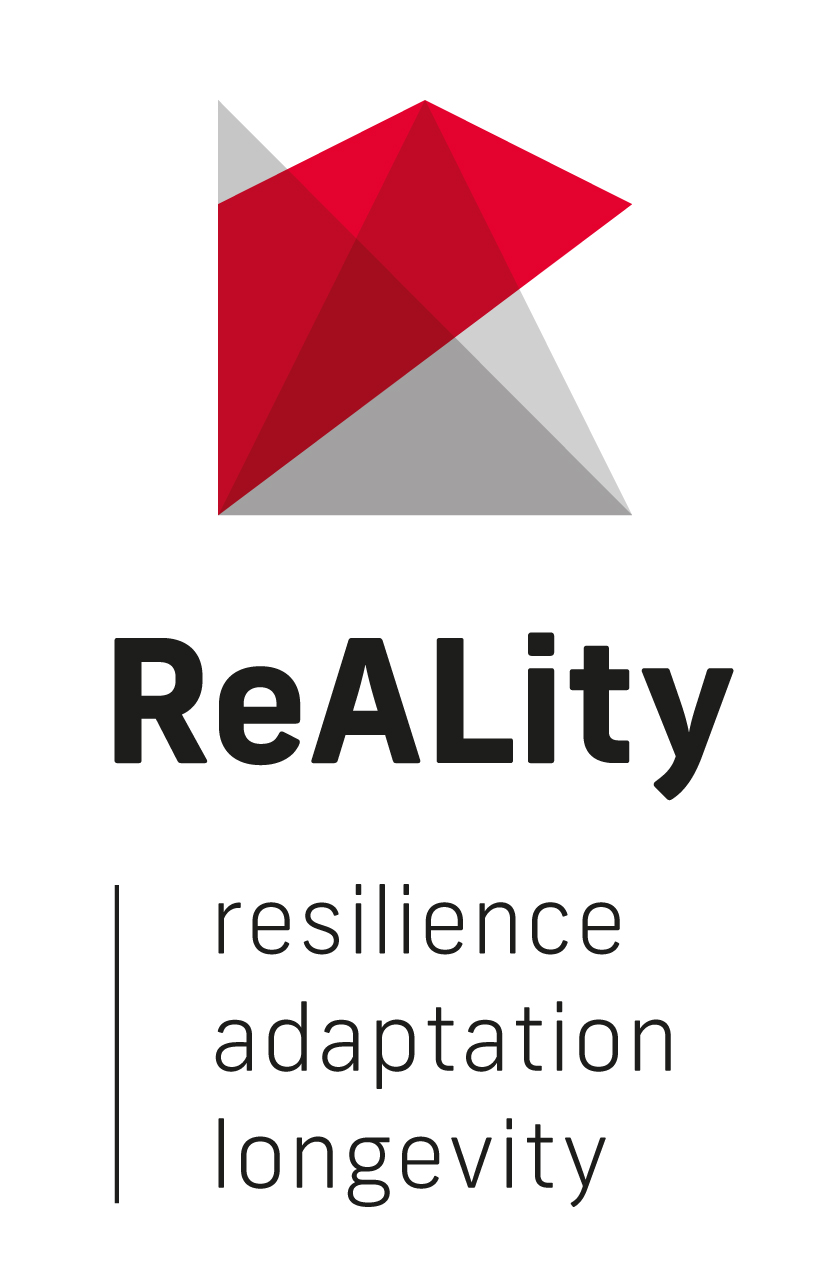A System Approach Towards Understanding Mechanisms of Replicative Senescence
Telomeres shorten with every cell division cycle, which eventually leads to the onset of replicative senescence. While senescence acts as a tumor suppressor, the accumulation of senescent cells also drives the ageing process. Hence, senescence onset in the context of telomere shortening must be tightly regulated in order to maintain a non-pathogenic balance. Previous genome-wide screens performed in budding yeast revealed >200 gene deletions that affect senescence rates in the absence of telomerase. However, it remains unclear which transcriptional, metabolic or biochemical pathways are altered in the absence of any of these >200 genes and how they contribute to the common phenotype.
To elucidate which molecular networks are either driving or repressing senescence, we will interrogate molecular changes on the proteome level in each of the 200 gene deletions in a telomerase negative context. Combining yeast genetic approaches with high-throughput quantitative proteomics and bioinformatic pipelines, our project will define molecular signature(s) that impinge on senescence onset: the senescesome.
The contribution of senescesome factors will inform studies in other model systems, including a distantly related yeast species, S. pombe, as well as in human cells. The molecular and functional understanding of the senescesome will allow us to design intelligent means of genetic and pharmacological interventions. Synergizing with ongoing research at the University Medical Center in Mainz, we will translate our senescesome data to clinically relevant scenarios including: immune senescence, cardiac senescence following myocardial infarction, ageing and age-related diseases.

We will use quantitative proteomics to determine which protein expression profiles are associated with replicative senescence and accelerated replicative senescence. Ideally we will identify biochemical processes and pathways that can be manipulated genetically or pharmacologically to alter rates of senescence.
Principal Investigators
Prof. Dr. Brian Luke, Faculty of Biology, JGU/Institute of Molecular Biology (contact person, e-mail)
Prof. Dr. Peter Baumann, Faculty of Biology, JGU/Institute of Molecular Biology
Prof. Dr. Stefan Tenzer, University Medical Center Mainz

